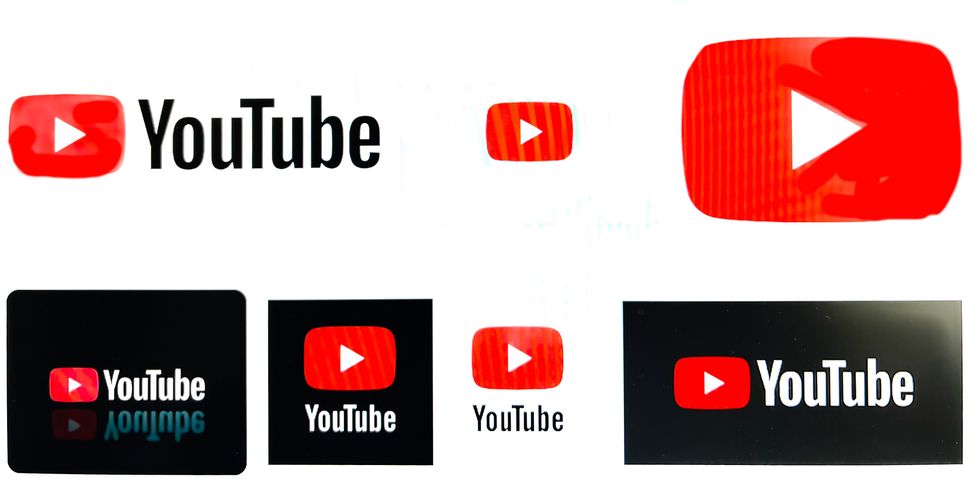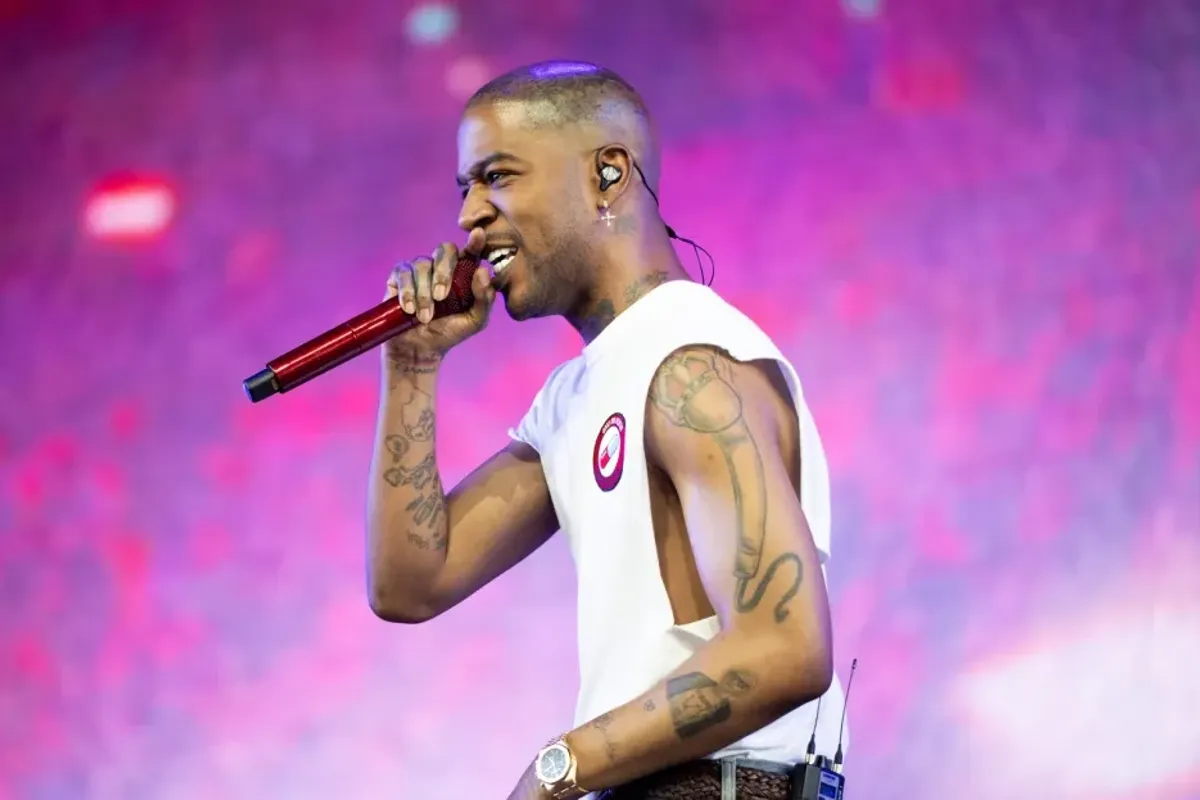YouTube Television #2—Bill’s Big Watch Treat
Recently, my editor-in-chief David Farrell suggested a second go-round was in order. How could I say no?

By Bill King
Recently, my editor-in-chief David Farrell suggested a second go-round was in order. How could I say no?
YouTube is a friend and companion most evenings. I couldn’t tie a tie until I paused for a two-minute run-through. Even then, I had to turn my back to the screen to complete. Since then, the ability to solve the most complex schemes, from setting up a digital camera to adjusting the heat of an eco-friendly space heater, easily solved. Between those accomplishments are the many suggested diversions. One tap leads to the next. That journey brings me to this week’s travels. I realize there is an algorithm following my every move and tossing red meat my way. Since I’m not susceptible to online gambling or home renovations, music arrives in abundance. Enjoy!
Whitney Houston—David Letterman (September 12, 1985)
It’s still a painful reminder that when talent falls from grace, a victim of addiction and psychological struggles, how far-reaching that pain is. Houston’s passing still haunts us. A talent of insurmountable status; beyond mere earthlings. Angelic, bold, emotional, a range - broad and piercing, documented on those seven sound recordings and 57 singles, that never feel dated or timed out.
Houston’s first television appearance was on The Merv Griffin Show on June 23, 1983, when she was just 19 years old. Later in the show, she performed with her mother, Cissy Houston. Prior to coming out, record executive Clive Davis introduced Whitney. For Whitney’s first TV performance, she sings Home from the Broadway show The Wiz.
This popped up in a recent feed and rocked me out of an auto-tune stupor. Still a ‘wow’ moment.
What do these certified classical pianists and instructors think of Glenn Gould?
I asked 6 pianists what they think of Glenn Gould – Tonebase Piano
“I detest audiences. I think they are a force of evil.” Glenn Gould.
For Canadians, Glenn Gould is untouchable. What if we step outside the bubble and hear from those who have a deep connection with the music and peers about their opinions? Tonebase is all about classical piano—the nuts and bolts. Lessons with the brightest and best instructors. Much like any genre, opinionated but with the credentials and craftsmanship to validate.
McCartney 3,2,1
I wrote about this series months back. Then played only on Disney—now YouTube. It’s a keeper!
McCartney 3,2,1 ups my reverence for the creative process and innovative techniques behind each Beatles’ recording. With Rubin in front of a console, tape everywhere, McCartney and Rubin juggling the faders is something to witness. I don’t know how they separated the vocals from the instruments, since everything was two or four-track and bounced in the early ‘60s.
What strikes me is the clarity and purpose of each part. McCartney’s basslines are lead lines and perfect. The many modifications of guitar sounds give us a view of what was to come in popular recording techniques. There is no one set sound. Instead, each tone exploited to enhance the song. The Beatles were essentially a studio band, one that spent long, gruelling hours sorting out the material. As McCartney says, The Beatles had already put in 10,000 hours before they hit overseas.
Shot in black and white, the lighting keeps things intimate. With one overhead diffuser. Paul is articulate and quick to recall the circumstance behind every recorded part. The piccolo trumpet in Penny Lane—the story behind Eleanor Rigby—and the kicker–the Sergeant Pepper’s Lonely Hearts Club Band’s breakdown. The individual parts are breathtaking.
We mostly think of the Beatles as a soft, lightweight presence on the rock scene, but listen to the band—the guitars, Ringo’s exquisite drumming, Paul’s soulful brilliant bass lines and the groove. The Beatles were a certified groove band. Every track lopes along in the pocket–a sweet, sweet pocket. George’s sonic gifts were the summation of everything played on guitar before. The crunching vibe of Hound Dog Taylor, the clean jazz side of Wes Montgomery, and rhythm slashes of Charlie Christian and Robert Johnson. A thing of beauty!
History of Hip Hop in the Bronx
From 1973 on, a revolution occurred. In music, fashion, language, art, and style. As impactful as the Jazz Age, the coming of Rock & Roll, Hip Hop culture shaped our lives. The purest expression of black influence and creativity from the ground floor up. Here’s a short but detailed clip of its origins and forty-plus years lock on music.
Hans Zimmer Revealed - Documentary
I’ve long been enamoured with scoring films. Soundtracks underpin the action and pathos of the moment. Unlike current gold star and Oscar winner Justin Hurwitz (La La Land, Babylon), whose scores feel undernourished, derivative, and absent imagination, Zimmer’s are steeped in melody, anticipation, grace, vivid colours and invention.
“Film scores encompass an enormous variety of styles of music, depending on the nature of the films they accompany. While most scores are orchestral works rooted in Western classical music, jazz also influences many scores, rock, pop, blues, new-age and ambient music, and a wide range of ethnic and world music styles. Since the 1950s, many scores have also included electronic elements in the score, and many scores written today feature a hybrid of orchestral and electronic instruments.
Since the invention of digital technology and audio sampling, many modern films have been able to rely on digital samples to imitate the sound of live instruments. Many scores are created and performed by the composers themselves by using music composition software, synthesizers, samplers, and MIDI controllers.” Film Score.
Zimmer at his best: The Lion King, Gladiator, Pirates of the Caribbean, The Da Vinci Code, Sherlock Holmes, The Dark Knight, and Dune.
Sister Rosetta Tharpe - The Original Soul Sister
Chuck Berry once said his entire career was “one long Sister Rosetta Tharpe impersonation.” On stage, she did an early version of Berry’s duckwalk, but all you need to hear is the guitar introduction to Sister Rosetta’s 1947 hit The Lord Followed Me to recognize Chuck’s musical debt to her.
Try this on for popularity. In 1951, rock & roll pioneer Sister Rosetta Tharpe married her soon-to-be manager Russell Morrison in front of 25,000 paying customers at Washington, D.C.’s Griffith Stadium. Though the marriage was for show, Tharpe’s public nuptials became an early stadium rock event.
To this day, a rare few know of this giant of the guitar, big belting gospel voice and screen presence. She taught young men how to rock, then roll!
Oscar Peterson and Keith Emerson (January 1976)
I recently watched this and was drawn to the shared admiration these two giants of the piano had for each other. I caught Emerson with Nice at Fillmore East in the 60s. The playing was a mix of classical, progressive rock, wildly theatrical and bruising. From my seat, I could sense the stress Emerson placed in his hands. At my age, and a good deal of rockabilly thumping nights behind, arthritis is inevitable and painful. I’ve learned how to cope and appreciate the pain-free times and work around the affliction. I asked myself when Emerson took his life if it was associated with loss of hand control. The unbearable circumstances.
“Keith Emerson kept secret a debilitating physical pain that affects millions,” one expert says.
Emerson of Emerson, Lake & Palmer shot himself in his Santa Monica home on 11 March 2016. He was 71.
“Musicians can’t talk about it because they won’t get another gig if word gets out that they’re in pain, so they keep quiet,” said Jill Gambaro, a carpal tunnel syndrome expert in Los Angeles.
Gambaro says she was emailing back and forth with Emerson for her book about his battle with focal dystonia, which is in the same family as carpal tunnel, a syndrome that causes nerve pain in the hands. CBS.LA”
Is Old Music Killing New Music?
(NFR Podcast) Is Old Music Killing New Music? MRC Data shows 70% of all music consumed was old music (released 18 months ago or prior). In this new episode, they speak about the decline of mainstream hits in the 2020s and the weaknesses that many of these songs and albums share. they also take you through our key observations from the Billboard 200 Chart, which provide further insight into the topic. Do you think old music is killing new music?
Ted Goia... A Warning on the Future of Music (With Rick Beato)
This is the one blog I subscribe to and shell out a few bucks for annually. Something of brain value that comes almost daily. As most thinking folks understand, the mind craves nourishment. A fair portion of what’s available, especially in the arts, is a thin layer of candy-coated fluff. Sweet, tasty and without nutritional value. Not for the curious mind. Ted goes deep, excavates and uncovers. The Most Important City in the History of Music Isn’t What You Think It is… This is a recent article uncovering the music centres of the universe dating back in time.
While a fair many are focused on the latest Madonna attention driver, Ted takes us on a journey and presses noses to the ground.
The Honest Broker—on Substack
A trustworthy guide to music, books, arts, & culture by critic and historian Ted Gioia
Ted Gioia is an American jazz critic and music historian. He is an author of eleven books, including Music: A Subversive History, The Jazz Standards: A Guide to the Repertoire, The History of Jazz and Delta Blues. He is also a jazz musician and a founder of Stanford University’s jazz studies program.

















